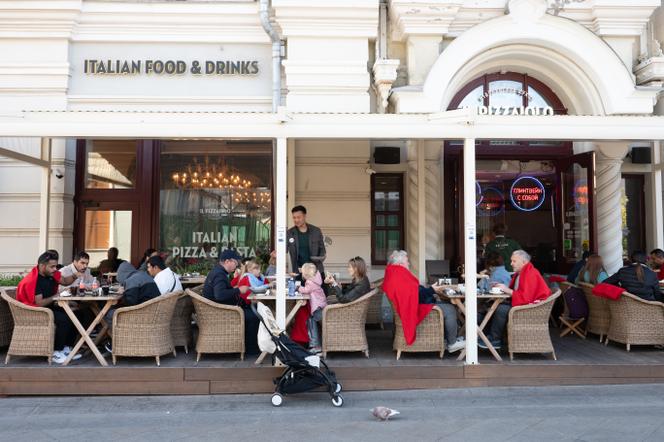


Founder of the Moscow-based Center for Research on Post-Industrial Societies, Vladislav Inozemtsev is an economist critical of Vladimir Putin's regime. He was classified as a "foreign agent" by the Russian judiciary in May 2023 and went into exile in Washington, where he helped set up an opposition think tank based in Cyprus, the Center of Analysis and Strategies in Europe.
Yes. It is expected to grow from 3.5% to 4% in 2024. In reality, Russians are earning more money: Real wages rose by around 10% in the first half of this year. Of course, there is inflation, above official targets, and this is affecting consumer purchasing power. But in 2023 and 2024, incomes have been rising at a much faster rate, so Russians realize that well-being is increasing, not decreasing.
The economy is certainly powered by high public spending, but this does indeed seem to be generating growth. The budget is being fueled by additional revenue not only from export earnings but also from domestic economic activity. From January to August, these revenues increased by 27.3% compared with 2023. The federal budget is therefore doing well, with a deficit limited to 0.2% of gross domestic product (GDP) over the first eight months of the year. The Ministry of Finance should even be able to increase budget spending for the rest of the year.
The Russian economy will nonetheless slow down in the second half of the year, but it will not plunge into recession. By 2025, GDP growth should be 2.5% or even slightly lower. However, this is not at all a problem for the country's economic and political stability.
Yes, they are having an effect, no doubt about it. These sanctions affect certain sectors: The military-industrial complex, the automotive industry, the steel industry, natural gas production, civil air transport. What doesn't seem to be affected at all are the service sector, most banking activities, residential construction, agriculture and everything having to do with basic necessities, and wholesale and retail trade.
As a result, the sanctions are not too damaging to the Russian economy at the moment. Moreover, they do little to change the behavior of "ordinary" Russians, since their lifestyles, largely unaffected, depend mainly on locally produced goods and services. As for the upper strata of the middle class, the biggest consumers of Western products, they have either left the country or gotten used to the new realities.
You have 29.8% of this article left to read. The rest is for subscribers only.
